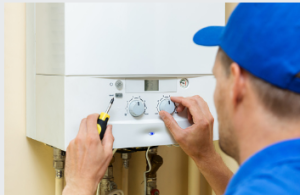Hot water systems provide hot water by circulating the water through the heating element, and they do not require a storage tank and do not suffer from energy losses. They can run on electricity, gas, or LPG. Gas models can have electronic ignition or a pilot flame and can be installed externally or internally if adequate ventilation is available.
Electricity
Australian and New Zealand regulations set minimum energy performance standards for electric storage water heaters. These standards ensure that these heaters retain only a little heat from their water tanks. The regulated systems must meet several standards, including Minimum Energy Performance Standards (MEPS) and Energy Rating Label requirements. Learn more here www.distinctplumbing.com.au/hot-water-systems-adelaide.
 Switching to electric water heating will reduce your carbon footprint by up to 1.04 tonnes per home per year. It is the equivalent of reducing gas-powered vehicle usage by 30%. This reduction can be even greater for homes with higher hot water consumption. Electricity is also cheaper over its lifetime than gas.
Switching to electric water heating will reduce your carbon footprint by up to 1.04 tonnes per home per year. It is the equivalent of reducing gas-powered vehicle usage by 30%. This reduction can be even greater for homes with higher hot water consumption. Electricity is also cheaper over its lifetime than gas.
Gas
Gas hot water systems Adelaide provide hot water to a property on demand. They use natural gas to heat water that is sent through pipes. Gas hot water systems are also used to power storage hot water systems and as boosters in hybrid solar systems. Gas heaters have energy ratings that help determine how much energy your system will use. You can purchase higher-efficiency models, but they are more expensive upfront.
Gas hot water systems generally require a gas connection to your home, which can be costly. Gas storage hot water systems have storage tanks that hold hot water in the tank. However, they use energy constantly to maintain this water, so they can quickly run out of hot water. In addition, you may have to wait for the water to be heated up again.
Fortunately, gas hot water systems can help you save money and the environment. It is because gas burners generate heat and flow water through a coiled pipe called a heat exchanger. When a hot water tap is turned on, the gas burner starts. Because the water is constantly running through the exchanger, it only heats enough water to provide hot water for the household. Because of this, gas hot water systems can result in significant energy savings.
LPG
LPG hot water systems can be a great investment for any home. They are quiet and offer continuous hot water. They also offer the same environmental efficiency as natural gas. LPG systems are also suitable for commercial applications. These types of systems can also save money by running less often. In addition, compared to electricity, they can be more environmentally friendly. Learn more here www.distinctplumbing.com.au/hot-water-systems-adelaide.
LPG hot water systems can help reduce your energy bills. On average, they can save up to 75% on electric systems. Using LPG means less water heating and lower greenhouse gas emissions. Plus, LPG systems can last up to 20 years. In addition to saving money on electricity, LPG can also provide extra warmth in your home during winter.
LPG hot water systems are great for commercial and residential applications. Commercial and residential buildings require hot water for staple applications like bathing, showering, dishwashing, and laundry. These systems are reliable and can prevent power cuts. These gas water heaters can also heat water beyond its initial temperature and store it at a temperature that suits your needs.
Geothermal energy
Geothermal energy can be a great source of heat for heating and cooling. The energy is available in underground reservoirs and can be extracted through hydraulic stimulation. Geothermal energy can also be used to power turbines that generate electricity. The first geothermal energy hot water system was built in 1892 in Boise, Idaho. The system is still operating today and supplies heat to 450 homes.
One type of geothermal system uses heated groundwater. The water can reach temperatures of around 200 degrees Fahrenheit. This hot groundwater is a natural resource that can be found several miles under the surface of the Earth. In some areas, it has been used to cook food and heat water for thousands of years. Geothermal energy can also be used for heating and electricity generation in power plants.
Solar energy
Solar energy for hot water systems Adelaide is an emerging technology rapidly gaining popularity. The global success of this technology has made it a major opportunity for reducing fossil fuel consumption. However, the technology remains virtually unheard of in the U.S. Perhaps due to the demand for cheap fossil fuels and simple solutions, this technology has been ignored by many consumers and policymakers alike.
Solar water heaters have been used for centuries and can be used in any climate. Although they may be costly, they do not contribute to air pollution and can reduce household utility costs by as much as two-thirds. Solar water heaters also require no special sunlight conditions, so you don’t need a sunny climate.
Solar systems can be added to hot water heating systems in many homes. Although they do not have the same efficiency as photovoltaic systems, they can still be a great option. They can supplement a conventional hot water system and provide about 20 per cent of the total annual heating load.